Rationale of Religious Education
(As taken from our R.E. Policy)
The purpose of Religious Education at St Ursula’s Catholic Primary School is to nurture the Catholic Faith, and its teachings, in our children. Our mission is to help the children in our school to know God and to recognise his presence in others. By helping them to live this faith, we hope to encourage our children to develop a better relationship with God and others around them. Central to our ethos are the opportunities for prayer and worship which lie at the heart of our faith. The ethos of the school is of great importance, and we seek to create an atmosphere of love and respect, among all in our school community.
Children of other faiths and none, who attend the school are warmly welcomed and nurtured as part of our school learning community. Attendance and respect at acts of collective worship is expected, and seen as support of the Catholic ethos in action.
We place great value on respect for the individual. We encourage everyone to be honest, tolerant, just and forgiving of one another and we recognise that each person who is a part of the St Ursula’s Catholic Primary School community; staff, children and parents, is on their own personal journey of faith, and are all at different stages.
Our RE policy sets out the rationale, purposes and the time spent in the RE teaching at St. Ursula’s and our Yearly overview will provide further information as to when each topic is covered.
If you want to find out how you can support your child with their learning in Religious Education, please read our termly RE newsletter for further ideas and information.
LINKS:
Come and See RE
Jesus said to his disciples, “Let the children come to me.” (Mark 10:14)
Through the vehicle of the Come and See curriculum the staff at St. Ursula’s strive to develop creative and reflective interpretations of the scheme’s lesson ideas that enable all pupils to ponder and reflect upon the teachings of Jesus and the love of God.
These lessons have a strong scripture focus and allow children to explore the bible and it’s teachings through song, art, drama, scripture analysis, narrative writing, composition and spiritual journaling.
The Come and See curriculum offers pupils the opportunity to search, to explore, to discover, and to respond.



The scheme is broken down into 3 key themes: Church, Sacrament and Christian living. These three themes are covered within each term resulting in there being 9 key topics covered throughout the year in each year group. These can be found on our overview in the links at the bottom of this page.
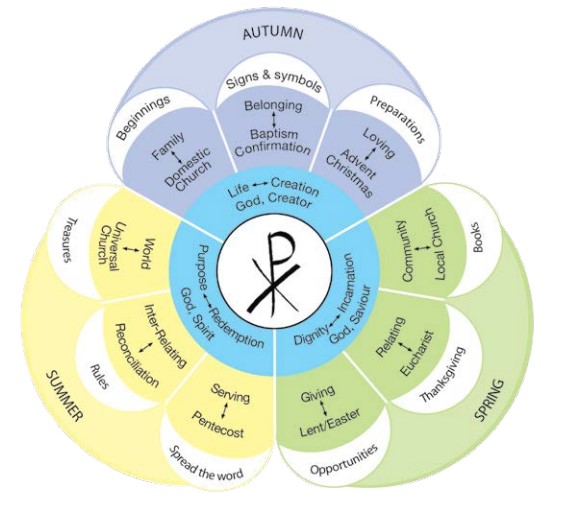
At the beginning of each topic, the children are asked the Big Question. By giving the learning in Religious Education direction through the use of key questions, mysteries or puzzles to answer or solve, the curriculum appears much more compelling, imaginative and challenging.
A key question should also be relevant to the children’s interests and concerns. Topics such as ‘Rules’ which explores The Sacrament of Reconciliation may not capture the attention and interest of a student in the same way as a question such as ‘How do rules bring freedom?’
These questions are then asked again at the end of the topic, to allow children to reflect on what they have learnt.
The scheme has been cross referenced with the Religious Education Curriculum Directory 2018 to ensure that the teaching and learning in of our pupils “truly reflected the vision and breadth of the teaching of the Church outlined in the Catechism.”[1]
LINKS:
C&S Overview
Big Q
RECD Cross Reference KS1
RECD Cross Reference KS2
[1] The Bishops Conference of England and Wales. (2012). Religious Education Curriculum Directory for Catholic Schools and Colleges. []. The Department of Catholic Education and Formation of the Catholic Bishops’ Conference. Available at: https://www.catholiceducation.org.uk/images/RECD_2012.pdf
A Yearl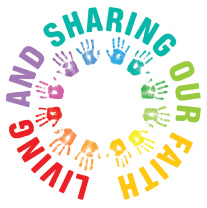 y Overview
y Overview
Within the Autumn term the themes have been developed in light of an understanding of Creation. The year begins with all year group focusing on their families via the domestic church, before considering how they belong within the church’s family through the sacraments of baptism and confirmation before moving onto the theme of love during their advent topics.
During the Spring term the focus shifts to understanding Incarnation. They begin the term with the theme of Community, exploring the Local Church. The second topic of the Spring term is sacramental, looking at the Eucharist and what it invites us to consider as Christians, before lastly moving onto the Christian living topic of that term; Giving. Which explores the liturgical theme of Lent and Easter, when Jesus gave his life for us.
Lastly, within the Summer term the themes have been established to develop an understanding of Redemption, and the work of the Holy Spirit. This term begins with a Liturgical focus, looking at the theme of Serving by exploring Pentecost and our mission within the Holy Spirit. The second topic focuses on
Inter-Relating though the sacrament of Reconciliation, and the final topic of the term explores our World, using CAFOD’s teaching resources to delve into the theme of the Universal Church.
Within the school year children are also given opportunity to learn about other religions, the two religions that we focus on at St. Ursula’s are Judaism and Islam.
LINKS:
Come and See Overview
Big Questions
Throughout the scheme there is a focus on the development and progression of religious knowledge and understanding with clear developments in the key vocabulary that the children are exposed to. At the start of each topic all children complete an activity focused on the key vocabulary for that theme.
The vocabulary and key scripture references for each topic are on display within the classrooms, and from Year 2-Year 6 every child has access to an age-appropriate bible within lessons.
The documents below outline the progression of religious vocabulary, scripture and theological stepping stones.
LINKS:
Key vocab progression document Term 1
Key vocab progression document Term 2
Key vocab progression document Term 3
To Know You More Clearly
A new Religious Education (RE) Directory for Catholic schools,
colleges and academies in England and Wales has been created.
Titled ‘To Know You More Clearly’ and published by the CES, the directory sets out the purpose of RE from Early Years Foundation Stage to Year 9 and features a programme of study with a model curriculum, corresponding to the six half-terms of the school year.
Based on the constitutions of the Second Vatican Council and rooted in the Catechism of the Catholic Church, the objective of the curriculum is religiously literate and engaged young people, with the knowledge, understanding and skills to reflect spiritually, think ethically and theologically, and recognise the demands of religious commitment in everyday life.
Our EYFS (Nursery & Reception) have started the new Religious Education Directory ' To know You More Clearly' framework. This framework will be progressively rolled out across the school, replacing the Come and See scheme by 2025. The RED implementation Action Plan can be found below:
Scripture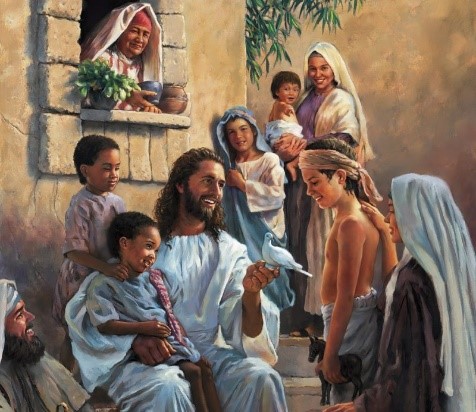
At St Ursula’s we recognise that engagement with Scripture is essential to children developing and understanding not only their faith, but also the story of the community of the church. Throughout the bible children are exposed to the story of God’s love and care for all, as well as how people have responded to that love. Whilst it is important where possible to enable children to hear the Word of God from its original source – The Bible. However, we recognise that for children of different ages and abilities to fully access and immerse themselves in scripture it is important for them to engage with those stories in a way that makes them truly come alive. Click the links below to see some examples.

- Super Book (and other animations)
- Wednesday Word
- Spiritual Journalling
- Age Appropriate Bibles
- Analysis of Scripture
- Famous Religious Art
- Puppet Sacks
- Sequencing
- Newspapers
- Letters
- Drama
- Debate
Religious Literacy
The outcome of excellent religious education is religiously literate and engaged young people.
Religious Education Curriculum Directory 2012
Religious Literacy involves the ability to understand, recognise and evaluate the practises, beliefs and foundations of our faith. This involves the children understanding:
- the history of our church both domestically, locally and universally.
- central texts and pieces of scripture
- the core beliefs within our faith and how they affect our choices
- common practices within our faith
- the sacraments and their purpose
This is delivered within each topic through a process recognised in the Catechism of the Catholic Church:
- EXPLORE – by exploring their life experience to discover value and significance
- REVEAL – by hearing, understanding and reflecting on the Christian message of that topic using scripture, prayer and real life examples.
- RESPOND – at the end of each topic allowing children to bring what they have learnt to mind by celebrating and applying it.
Other Religions
During Jesus’ ministry he showed a great respect for those of differing beliefs to his own, he welcomed everyone regardless of their background or their religion. This is evident in his encounters: with the Samaritan woman (John 4); the Roman Centurion with a sick servant (Luke 7); the Roman governor Pilate (John 18-19); the Canaanite woman with a sick daughter (Matthew 15); the Samaritan leper grateful for his healing (Luke 17).
As with everything we do, we try to emulate Jesus’ kindness and love for others, we are called to be respectful and considerate of all those that we meet and to enable our pupils to do this as they enter the wider world we encourage our pupils to learn about those of different cultures and religious through many of our curriculum areas.
Within the R.E. curriculum the children focus on two other faiths: Judaism and Islam.
When teaching about other faiths we follow the process of: Look, Discover, Respect.
Look: a short introduction to the topic allowing children to consider how it may link to their own familiar experiences.
Discover: this is the main section of the topic that will include more practical activities such as engaging with artefacts, watching videos or visiting places of worship.
Respect: this is the final part of the topic which allows children to reflect on what they have learnt, appreciated or respected and what it means for followers of that religion.
Assessment Progress
Assessment in religious education is related to concepts skills and attitudes to be developed through learning about, learning from and evaluating religion. It is these three areas that make up the skills that we look to assess children with in our RE lessons and assessments.
|
AT1: Knowledge and Understanding ('learning about') |
AT2: Engagement and Response ('learning from') |
AT3: Analysis and Evaluation |
|
Developing Knowledge and Understanding Making Links and Connections Historical Development Religious and Specialist Vocabulary |
Meaning and Purpose Beliefs and Values |
Use of Sources as Evidence Construct Arguments Make Judgements Recognise Diversity Analyse and Deconstruct |
These skills are built on throughout the children’s time at school, beginning with a real focus on AT1 in EYFS before building in AT2 as the children progress through KS1 and LKS2. To the higher level thinking of AT3 that is developed further in UKS2. These skills are outlined further in the Skills Guide. See Links at the bottom of this page.
Within RE teachers are encouraged to make use of both summative and formative assessment. Teachers are continually using formative assessment both in their questioning, through discussion and when marking books. In terms of summative assessment, we have adopted a three-year cycle. This has allowed our teachers to formally assess one topic a term in greater detail enabling pupils to demonstrate their skills to their full potential. Teachers and pupils are aware of the skills they need to develop, and parents are informed of their children’s targets in their termly reports.

The children are assessed against the Age-Related Standards (3-19) in Religious Education as set out by The Department of Catholic Education and Formation of The Catholic Bishops’ Conference of England and Wales. These standards have been broken down into Year groups and teachers are required to report on them each term.
LINKS:
Age-Related Standards (3-19) in Religious Education
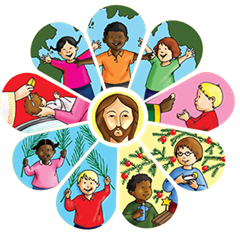 Staff Development
Staff Development
At St. Ursula’s we place a great emphasis on the development of our Staff and all staff are encouraged to continually better their practise through a variety of CPDs. Throughout the year our Subject Coordinator attends training at the diocese and feeds this back to staff through regular CPDs. The RE coordinator leads a whole school CPD every half term for teachers, and ensures to regularly drop in to TA Forums throughout the year to update TAs on any key changes to Religious Education within our school.
As a school we also work closely to the other primary schools within our deanery, moderations are organised to ensure we are assessing our children accurately and joint Insets are scheduled within the school year to enable teachers to share best practice.
RE Staff Development 2023-2024
|
|
||||||||||
|
|
||||||||||
|
|
As you may already be aware, the Department for Education has announced that in the academic year 2020/21, Relationships Education and Health Education will become statutory in all primary schools in England. This new subject will build on the non-statutory lessons we have previo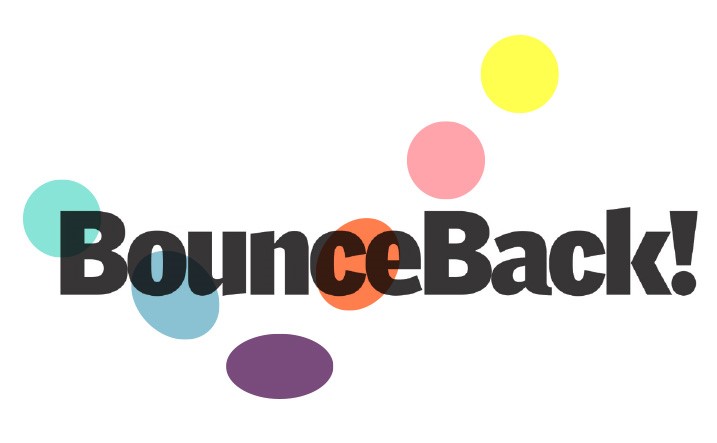 usly taught in RSE. This means that we have been reviewing our RSE (Relationship and Sex Education) curriculum and policy so we can be sure our RSE provision is appropriate for our pupils based on their:
usly taught in RSE. This means that we have been reviewing our RSE (Relationship and Sex Education) curriculum and policy so we can be sure our RSE provision is appropriate for our pupils based on their:
- Age
- Physical and emotional maturity
- Religious and cultural backgrounds
- Special educational needs and disabilities
As a Catholic school, our mission is to support the spiritual, moral, social and cultural development of all of our pupils, rooted in the wisdom and teaching of the Church. The education of children in human sexuality is an important, precious and privileged responsibility. The Church teaches us that this is very much a partnership with parents, in which parents are the ‘first educators’ of their children on these matters; ultimately, you confer on us the right to co-educate your children with you.
The school currently follows the Catholic Education Service Model RSE Curriculum document. The curriculum is delivered through our Science, Bounce Back and R.E lessons and dedicated lesson time given to RSE. 'A Journey in Love' is the RSE scheme that we use at St Ursula’s as recommended by the Diocese of Brentwood.
New RSE Powerpoint for Parents
RSE-Consultation-Documents
Should you wish to see copies of the teaching materials and lesson PowerPoints, these will be available from the school office for parents to review. Please do not hesitate to contact the school office and book a time to view these materials.
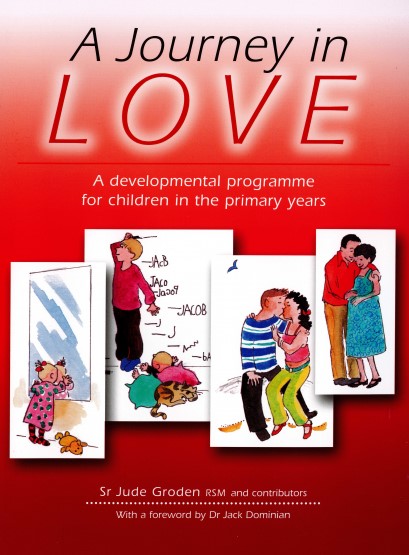 Can I withdraw my child from RSE?
Can I withdraw my child from RSE?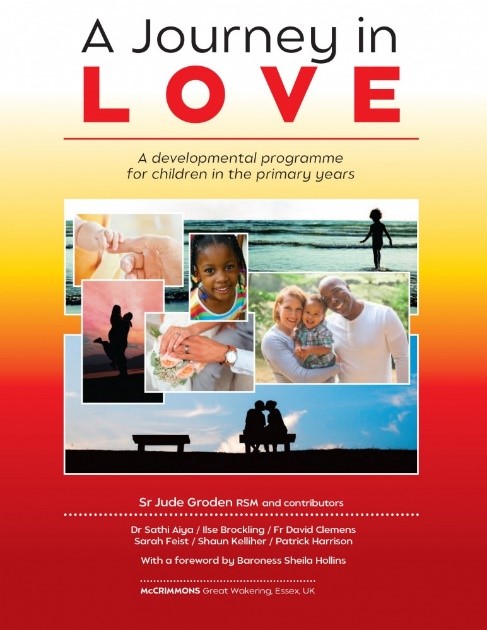
There is no right to withdraw pupils from Relationships Education at primary, which covers subjects such as family, friendship and safety or from teaching information that is a statutory part of the Science Curriculum. Parents retain the right to withdraw their child from the sex education parts of Relationships and Sex Education classes taught in primary school. These are covered in Journey in Love in Yr6 as outlined in the Journey in Love RSE documents. If you wish to withdraw your child from the conception lesson in Year 6, please contact the office on 01708 345200 or email office@stursulasprimaryschool.co.uk to book an appointment to discuss this.
More information can be found in our policy and via the DFE link by clicking HERE.
